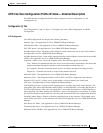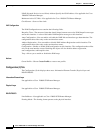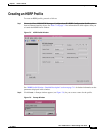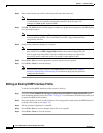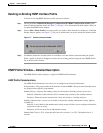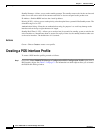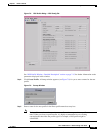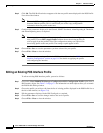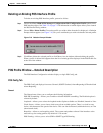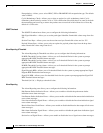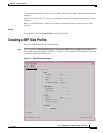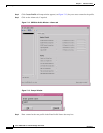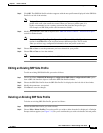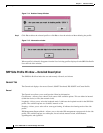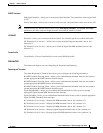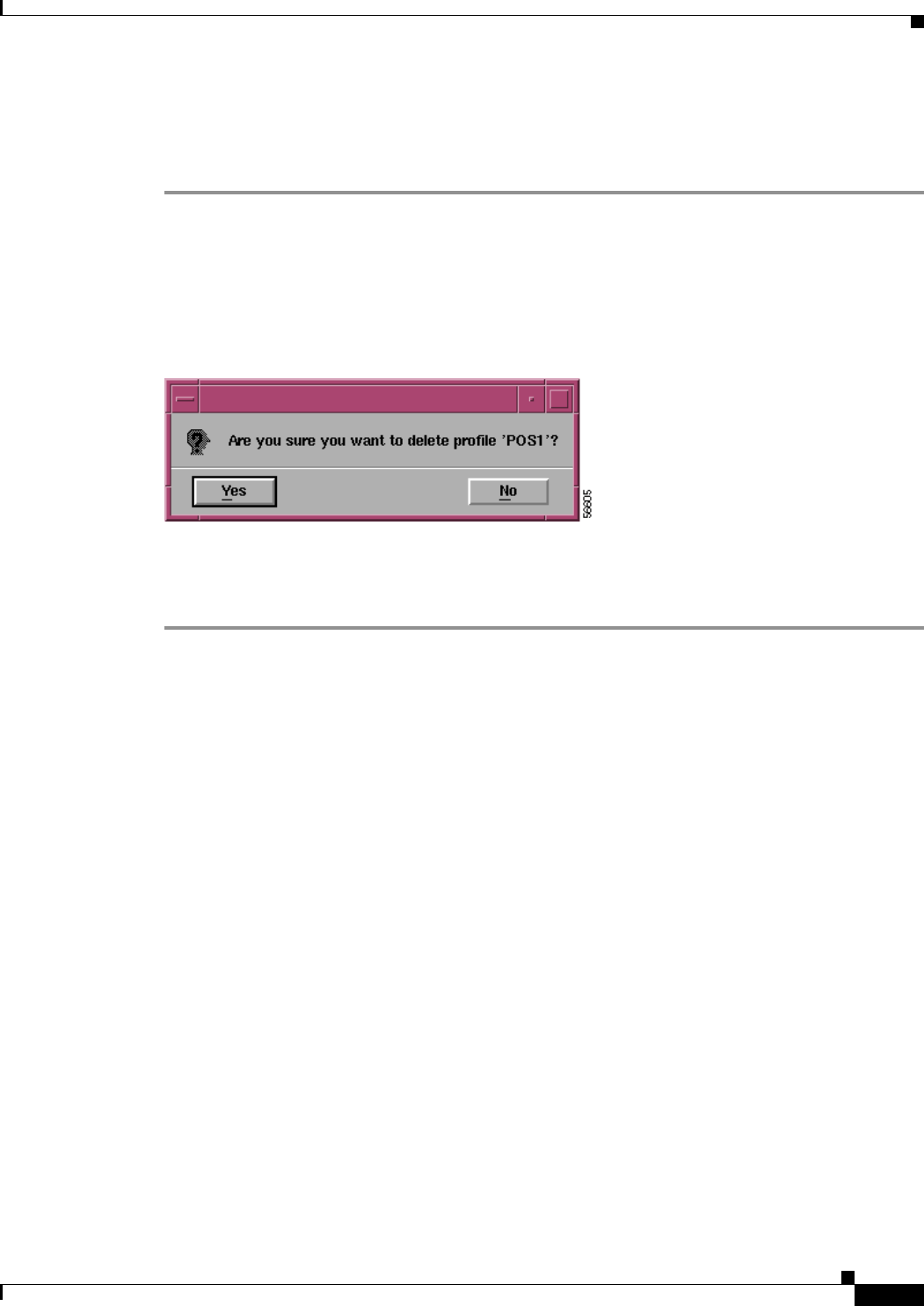
7-15
Cisco 12000/10700 v3.1.1 Router Manager User Guide
OL-4455-01
Chapter 7 Interface Profiles
Creating a POS Interface Profile
Deleting an Existing POS Interface Profile
To delete an existing POS Interface profile, proceed as follows:
Step 1 Choose the Cisco 12000/10720 Manager>Configuration>POS>Configuration Profile option from a
POS interface object. See Table 7-2 on page 7-2 for information on which objects allow you to launch
the POS Profile Dialog window.
Step 2 Choose Edit > Delete Profile. Choose the profile you wish to delete from the list displayed. A Deletion
Prompt window appears (see Figure 7-10) for you to confirm that you wish to delete the selected profile.
Figure 7-10 Deletion Prompt Window
Step 3
Click Yes to delete the selected profile or click No to close the window without deleting the profile.
When a profile is deleted it disappears from the list of existing profiles displayed in the POS Profile list
at the left of the window.
POS Profile Window—Detailed Description
The POS Interface Configuration window displays a single POS Config tab.
POS Config Tab
The POS Config tab displays four areas: General, SONET Overhead, Alarm Reporting & Threshold and
Alarm Reporting.
General
The General area allows you to configure the following information:
POS SPE Scrambling—Allows you to enable or disable POS SPE scrambling. The Disabled option is
selected by default.
Loopback—Allows you to select the loopback mode. Options available are: Disabled, Internal or Line.
Clock Source—Allows you to choose clock source from available options. There is a clock in every
device, which measures the speed of the device. This can either be Internal (within the device) or Line
(the network clock).
Keepalive—Allows to set keepalive period. The system sends packets to know if the interface or the
network is up for routing packets. By default it is 10 seconds.
POS Framing—Allows you to select SDH or SONET type POS framing.



